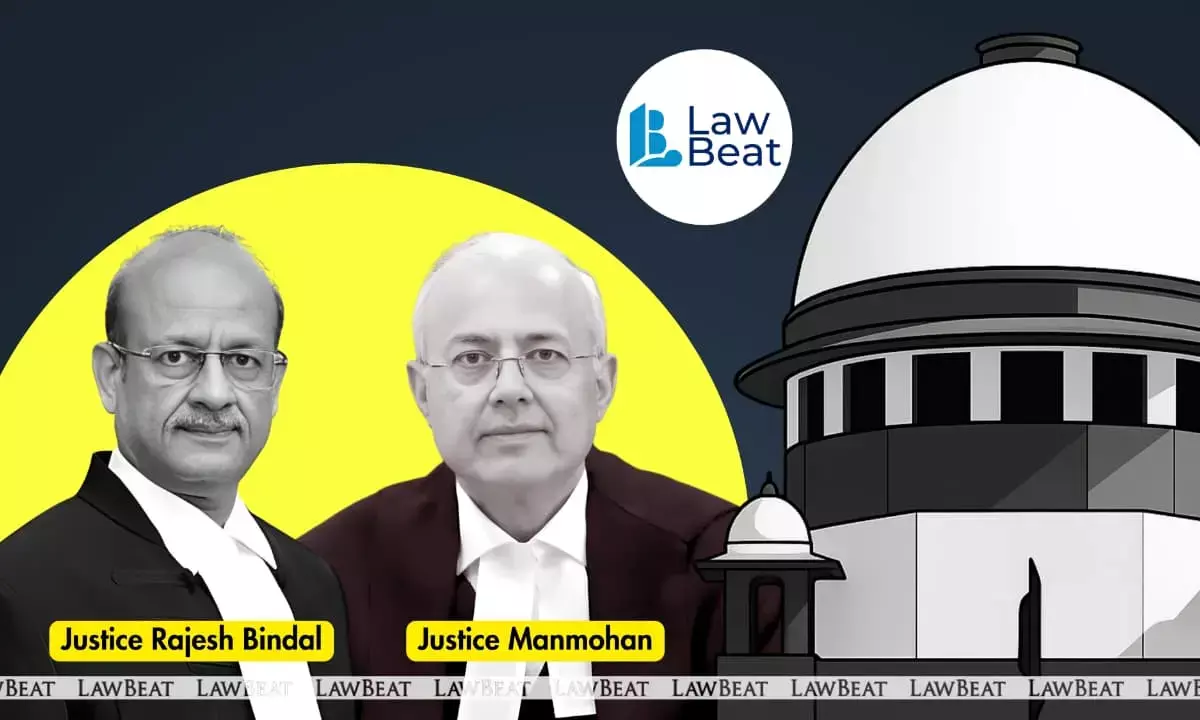'Bail Rejections Can’t Be Challenged as Habeas Corpus': SC Sets Aside MP HC Order Releasing Cheating Accused

Supreme Court Nips Bad Precedent in Bud, Overturns MP High Court's Unlawful Habeas Corpus Decision
The Supreme Court has ruled that the custody of an accused in a criminal case registered against him cannot be held to be unlawful especially when his bail applications have been dismissed.
Court set aside a Madhya Pradesh High Court order that, on a habeas corpus plea, directed release of a man facing charges of cheating and criminal breach of trust. Court said the High Court’s decision to entertain a habeas corpus petition to review the merits of bail denial was an exercise of jurisdiction “totally unknown to law".
"The manner in which the case has been dealt with really shocks the conscience of this Court. It is a case where accused was arrested and filed four bail applications before the High Court, which were rejected. Despite this, in a habeas corpus petition filed by his daughter, his custody has been held to be unlawful and he was directed to be released while examining the case on merits as if the Court was hearing appeal against the order rejecting the bail application," the bench of Justices Rajesh Bindal and Manmohan observed.
The top court delivered the ruling in an appeal filed by the State of Madhya Pradesh challenging the High Court’s order of 3 October 2024, which had allowed the daughter of accused Jibrakhan Lal Sahu to invoke habeas corpus jurisdiction to secure his release. Sahu, booked under Sections 420 and 409 of the Indian Penal Code in a 2021 cheating case in Bhopal, had been in custody since December 2023 after police arrested him following the filing of an FIR.
The Supreme Court noted that Sahu had, between January and May 2024, filed four separate applications seeking bail. Each of these was dismissed by the High Court after considering the allegations and the evidence submitted by the prosecution. The bench recorded that immediately after the fourth dismissal, instead of challenging the bail orders before the apex court, Sahu’s daughter filed a habeas corpus petition arguing that her father’s continued detention amounted to unlawful confinement.
Acting on that petition, the High Court had ordered Sahu’s release on a personal bond of Rs. 5,000 with one surety, holding that the family was facing financial difficulty and mental agony, and that the detenu did not have resources to approach the Supreme Court. The High Court also examined the merits of the allegations, ultimately concluding that the case justified extraordinary relief under Article 226 of the Constitution.
Terming this approach a serious legal error, the Supreme Court observed that habeas corpus is meant to address illegal or unauthorised detention, not to review judicial orders rejecting bail. The bench pointed out that the High Court had itself acknowledged the existence of four prior bail rejections, yet treated the lawful custody of an accused in a criminal case as an illegal detention.
The Supreme Court also expressed its concern that if the impugned order were left undisturbed, it could create a precedent for bypassing the established bail process by simply recasting bail grievances as habeas corpus petitions. To “nip the evil in the bud,” the court categorically held that custody of an accused pursuant to a criminal case and supported by judicial orders can never be termed unlawful.
Court further noted that although it had stayed the High Court’s order in July 2025, Sahu did not surrender immediately. He eventually surrendered only on 25 October 2025, after being granted additional time.
While counsel for the State argued that the High Court’s order amounted to a misuse of constitutional jurisdiction, counsel appearing for Sahu’s daughter conceded that the procedural route adopted was improper. He, however, urged that the accused be granted bail on the ground that two co-accused had already been released on regular bail.
The bench did not consider the plea for bail, stating that any future bail application must be decided independently by the competent court on its own merits. Allowing the State’s appeal, it set aside the High Court’s order in full, restoring the legal position as it stood before the habeas corpus petition was filed.
Case Title: State of Madhya Pradesh & Ors Vs Kusum Sahu
Judgment Date: November 03, 2025
Bench: Justices Rajesh Bindal and Manmohan
